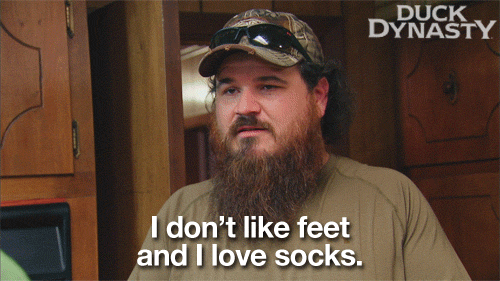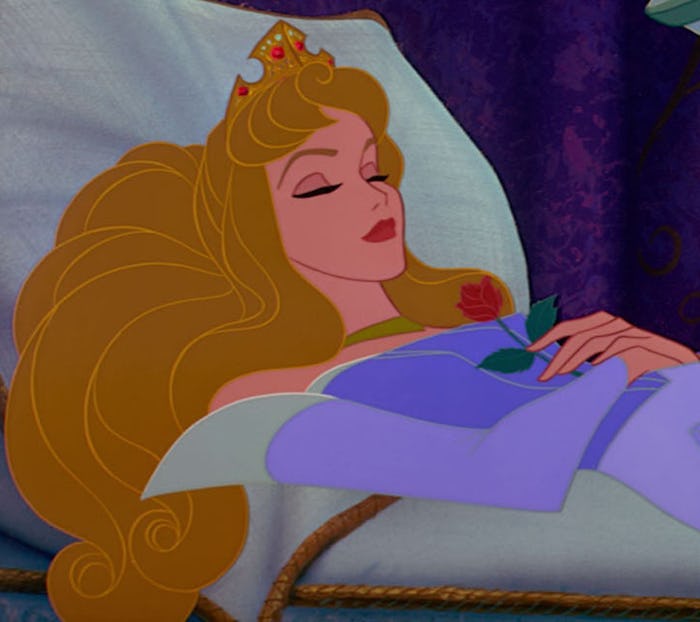Getting a good night’s sleep seems hard enough to achieve, but falling asleep can be even more difficult. Whether it’s stress from your day, anxiety about your to-do list, or other worries, plenty of factors can prevent you from drifting off to Neverland no matter how sleepy you feel. So it’s not surprising that we’re constantly searching for ways to fall asleep more easily.
The National Sleep Foundation recommends that adults sleep seven to nine hours per night, but the average person is only sleeping 6.8 hours. And women have an especially difficult time falling asleep, as hormonal changes take a toll on our bedtimes. But everyone is capable of creating bad bedtime habits that keep the awake till the wee hours of the morning– using your bedroom as a workspace, drinking one too many cups of coffee (apparently there is such a thing as too much caffeine), and not having a nighttime routine, just to name a few. If falling asleep is a constant struggle, then you might be suffering from a sleep condition like insomnia. But if heading to dreamland is prolonged because you’re relying on your Facebook newsfeed to make you sleepy, you might need some new ideas. Here are seven tricks to fall asleep more easily.
1Wear Socks

Wearing extra clothes to bed may seem like a nuisance, but putting on socks can help you fall asleep. Warming up your cold feet causes your blood vessels to dilate, signaling to the brain that it’s time for bed by heating the rest of your body. Now you just need to find a pair that won’t end up in the bottom of your bed sheets.
TeeHee Patterned Crew Socks, $9.99, Amazon
2 2. Meditate
A 2015 study conducted by JAMA Internal Medicine found that adults with sleep disturbances improved their issues more with meditation than traditional sleep education tips. If you find that your to-do list and the day’s activities are keeping your mind whirring, try a few meditation exercises to slip into sleep.
3Take A Warm Bath
There’s a reason that soaking yourself in a warm bath is so relaxing. Studies have shown that a bath increases your body’s temperature, but when you exit the tub, your core temp will rapidly drop. The second stage of NREM sleep includes a decrease in your body’s temperature, so mimicking this action with a warm bath can trick your mind into thinking sleep is on its way.
4Keep It Cool
Because your body’s core temperature is already dropping as you enter NREM sleep, keeping your room cool while maintain those degrees. Research has shown that if a room is too warm, your body will have a hard time regulating that drop, preventing your body from slipping into a deep sleep.
Lasko Ultra-Slim Oscillating Fan, $22.89, Amazon
5Add Lavender

This shrub from the mint family has a scent proven to decrease heart rates and blood pressure, which can help you relax and fall asleep. Studies have shown that those who breathe in the scent before bed also sleep deeper and wake up more refreshed. You can find lavender in sprays meant for your bed sheets, but you can also slip into a warm bath infused with lavender oils before bed to help your body wind down.
Aura Cacia Room and Body Mist in Relaxing Lavender, $8, Amazon
6Turn On White Noise
How many nights have you laid down in bed and been unable to sleep as sirens, your roommate, or a settling house keep your ears active? While some may prefer a silent bedroom, research has shown that adding white noise may help you fall asleep – and stay asleep. Adding white noise, such as a sound machine or even a box fan, can cut down on the background noise you hear and help your body settle into a deeper sleep.
Sleep Easy White Noise Machine, $26.99, Amazon
7Put Down The Tablet
Many find reading to be a stress reliever, making it a great way to wind down before bed. But, if your book is on a tablet, smartphone, or other electronic, your sleep may be doomed. A recent study found that the light transmitting from electronic devices makes it more difficult to fall asleep, and also delays your body’s natural REM cycle. Those who read an actual book (you know, one that doesn’t rely on batteries) before bed fell asleep ten minutes faster than those who read from an electronic device. Do yourself a favor and reach for a paper back over your Kindle.
Image: Disney; Wiffle Gif (2); Giphy (5)
